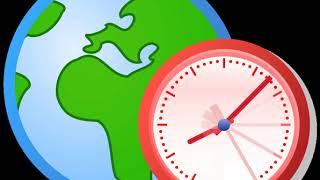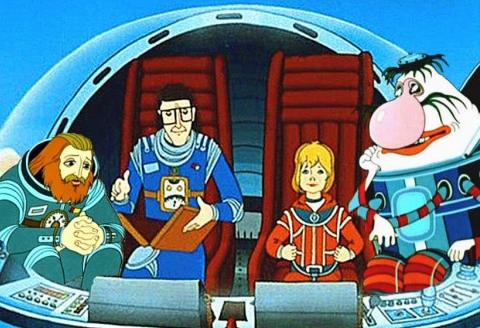Wii | Wikipedia audio article
Описание
This is an audio version of the Wikipedia Article:
https://en.wikipedia.org/wiki/Wii
00:03:14 1 History
00:03:23 1.1 Development
00:05:19 1.2 Name
00:07:36 1.3 Launch
00:08:44 2 Demographic
00:10:33 3 Software
00:13:50 3.1 Launch titles
00:14:55 4 Hardware
00:19:59 4.1 Wii Remote
00:21:46 4.2 Memory storage
00:23:49 4.3 Specifications
00:24:32 4.4 Technical problems
00:25:32 5 Features
00:25:59 5.1 Wii Menu
00:27:05 5.2 Backward compatibility
00:28:14 5.3 Nintendo DS connectivity
00:29:22 5.4 Online connectivity
00:30:20 5.4.1 Media Support
00:32:10 5.5 Parental controls
00:33:35 6 Reception
00:41:47 6.1 Sales
00:49:13 7 Legal issues
00:54:00 7.1 Wrist strap
00:54:57 7.2 Trademarks
00:56:43 8 Other models
00:56:52 8.1 RVL-101
00:58:11 8.2 Wii Mini (RVL-201)
00:59:43 9 Successor
Listening is a more natural way of learning, when compared to reading. Written language only began at around 3200 BC, but spoken language has existed long ago.
Learning by listening is a great way to:
- increases imagination and understanding
- improves your listening skills
- improves your own spoken accent
- learn while on the move
- reduce eye strain
Now learn the vast amount of general knowledge available on Wikipedia through audio (audio article). You could even learn subconsciously by playing the audio while you are sleeping! If you are planning to listen a lot, you could try using a bone conduction headphone, or a standard speaker instead of an earphone.
Listen on Google Assistant through Extra Audio:
https://assistant.google.com/services/invoke/uid/0000001a130b3f91
Other Wikipedia audio articles at:
https://www.youtube.com/results?search_query=wikipedia+tts
Upload your own Wikipedia articles through:
https://github.com/nodef/wikipedia-tts
Speaking Rate: 0.9523360422895463
Voice name: en-US-Wavenet-E
"I cannot teach anybody anything, I can only make them think."
- Socrates
SUMMARY
=======
The Wii ( WEE; known unofficially as the Nintendo Wii) is a home video game console released by Nintendo on November 19, 2006. As a seventh-generation console, the Wii competed with Microsoft's Xbox 360 and Sony's PlayStation 3. Nintendo states that its console targets a broader demographic than that of the two others. As of the first quarter of 2016, the Wii led its generation over the PlayStation 3 and Xbox 360 in worldwide sales, with more than 101 million units sold; in December 2009, the console broke the sales record for a single month in the United States.The Wii introduced the Wii Remote controller, which can be used as a handheld pointing device and which detects movement in three dimensions. The console runs games supplied on Wii optical discs. It also supported the now discontinued WiiConnect24 service, which enabled Wii to receive messages and updates over the Internet while in standby mode. Like other seventh-generation consoles it supported a service, called "Virtual Console", that downloaded emulated games from past Nintendo consoles, support for online video streaming such as BBC iPlayer, and other services provided by Nintendo over the Internet. From June 28, 2013, Internet services were gradually discontinued; since January 31, 2019, only re-download of games, system software update, and transfer of data between Wii and Wii U continued to be available, to be withdrawn at an unspecified future date. Wii Points could no longer be purchased after March 2018, and could not be used and were permanently lost from January 31, 2019.The Wii succeeded the GameCube; early models are fully backward-compatible with all GameCube games and most accessories. Nintendo first spoke of the console at the E3 2004 press conference and later unveiled it at E3 2005. Nintendo CEO Satoru Iwata revealed a prototype of the controller at the September 2005 Tokyo Game Show. At E3 2006, the console won the first of several awards. By December 8, 2006, it had completed its launch in the four key markets.
Later models are no longer compatible with Nintendo GameCube. Nintendo released a revised unit in 2011 in Europe, Australia, and North America. The Wii Mini, Nintendo's first major console redesign since the New-Style Super NES, was released first in Canada on December 7, 2012. The Wii Mini can only play Wii optical discs, as it has neither GameCube compatibility nor any networking capabilities; this model was not released in Japan, Australia, or New Zealand. The Wii's successor, the Wii U, was released on November 18, 2012. On October 20, 2013, Nintendo confirmed it had discontinued production of the Wii in Japan and Europe.





















